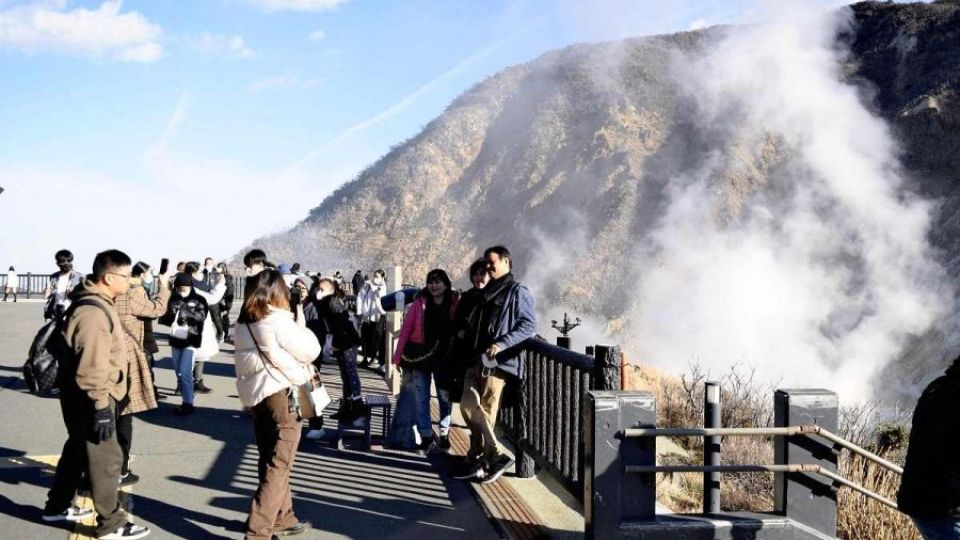January 25, 2023
TOKYO – Overseas tourists will likely play a key role in the future health of the Japanese economy, which has lagged other major nations in recovering from the effects of the coronavirus pandemic.
Moves are already afoot in the tourism industry to make up lost ground. A number of luxury hotels are slated to open to accommodate wealthy foreign tourists.
In April this year, Bulgari Hotel Tokyo — an affiliate of the Italian luxury jewelry brand — will open on the 39th-45th floors of Tokyo Midtown Yaesu, a high-rise building near Tokyo Station. The hotel is expected to be one of the most expensive accommodations in the nation and will target wealthy individuals from Japan and abroad.
Mitsui Fudosan Co., which operates the building, has seen its hotel-related income recover to about 90% of the pre-pandemic level. “Travel demand from Europe and the United States has been tremendous,” said company president Masanobu Komoda. “It’s more than enough to compensate for the decline in business travel.”
Orix Group, meanwhile, will open Karaku, a luxury ryokan Japanese-style inn with an open-air bath in each guest room, in Atami, Shizuoka Prefecture, by the end of the year. Another of the group’s ryokan in Hakone, Kanagawa Prefecture, is doing well — despite overnight accommodation costing more than ¥100,000 during the peak season — with 20% of the guests hailing from overseas, according to the operator.
“More and more foreign guests are looking forward to experiencing Japanese-style luxury,” said Naruo Fujii, general manager of the Hakone ryokan.
Some 31.88 million people visited Japan in 2019, spending about ¥4.8 trillion, or about 1% of the nation’s gross domestic product. But entry restrictions due to the pandemic have erased most of these benefits. Fallout from the pandemic was wide-ranging because the tourism industry has a broad base that includes lodging, transportation and retail, with as many as 5 million people involved in related industries, according to one estimate.
According to the International Monetary Fund, the spread of the novel coronavirus caused sharp economic declines around the world in 2020. The United States and the Euro zone rebounded swiftly the following year, growing more than 5%, but Japan’s recovery lagged far behind, growing only at the 1% level.
“Japan was late in vaccinating its people and also late in making the subsequent decision to normalize its economy,” said Keiji Kanda, senior economist at Daiwa Institute of Research Ltd.
Japan was the last among the Group of Seven nations to ease strict border controls, leading to criticism from the business community. Japan Business Federation (Keidanren) Chairman Masakazu Tokura bemoaned the delay, describing Japan’s situation as “a state of isolation.”
Japan’s border controls finally began to be eased in stages in 2022, and in November, visitor numbers had rebounded to 930,000 — about 40% of the level it stood at three years ago. This uptick is expected to boost the nation’s economic recovery, and Japan’s 2023 growth rate is expected to be 1.6%, higher than that of the U.S. and European countries, which are currently suffering from soaring prices.
The rapid depreciation of the yen over the past six months has led to an outflow of capital from Japan, which imports much of its energy and food. Due to the weak yen, visitor consumption is one of the few sources of foreign currency for the nation, as tourists take advantage of the country’s cheaper goods and services.
The government has made attracting overseas visitors a pillar of its growth strategy and has set a target of increasing visitor numbers to 60 million by 2030. The key to reviving the Japanese economy will be whether the government can make the tourism industry resilient and sustainable by raising the price per unit of consumption and enticing visitors to regional areas.

